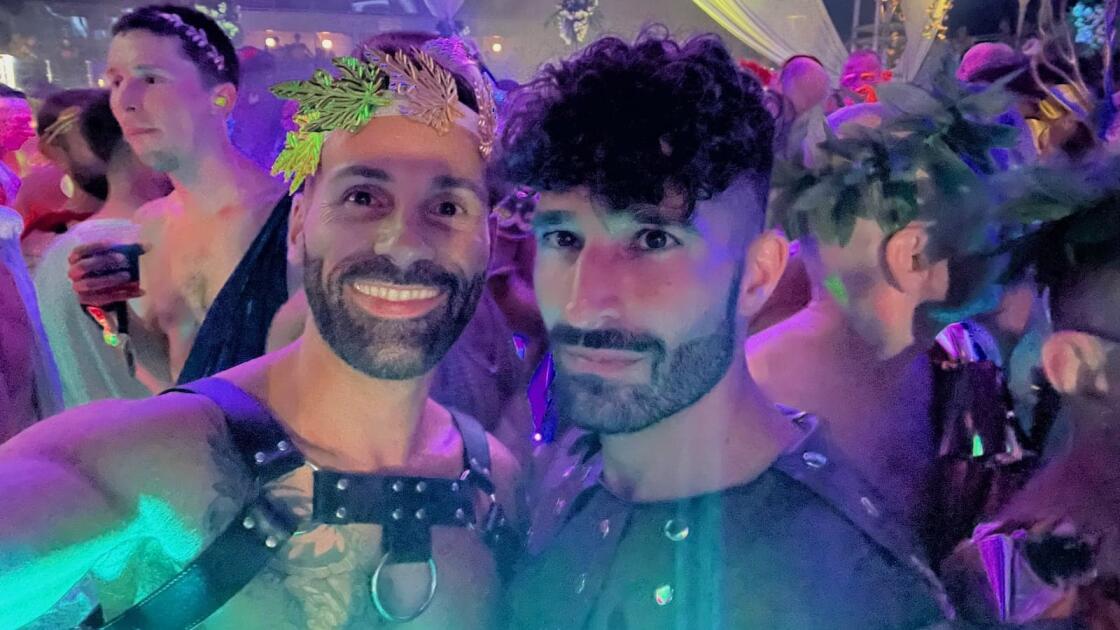We always use a VPN when traveling, especially when heading to countries that monitor our Internet usage and ban apps like Grindr. A VPN isn’t optional, it’s essential! Here's why it’s the first thing we ‘pack' before jetting off…
Think of it as your digital lube…slips you through places you’d otherwise get stuck 🙂
We first encountered VPNs on our big trip exploring the gay scene of China back in 2014. This is a country that has banned almost every day-to-day app and website we use, including Google, Dropbox, Instagram, WhatsApp, and Grindr, to name a few. Having a VPN was pretty much obligatory.
The more we traveled to other countries that censored Grindr, the more we realised that a VPN is a must, particularly in countries with anti gay laws where Internet usage is monitored. A VPN not only allows you to access blocked apps/websites, it also encrypts your data so you can browse the web anonymously.
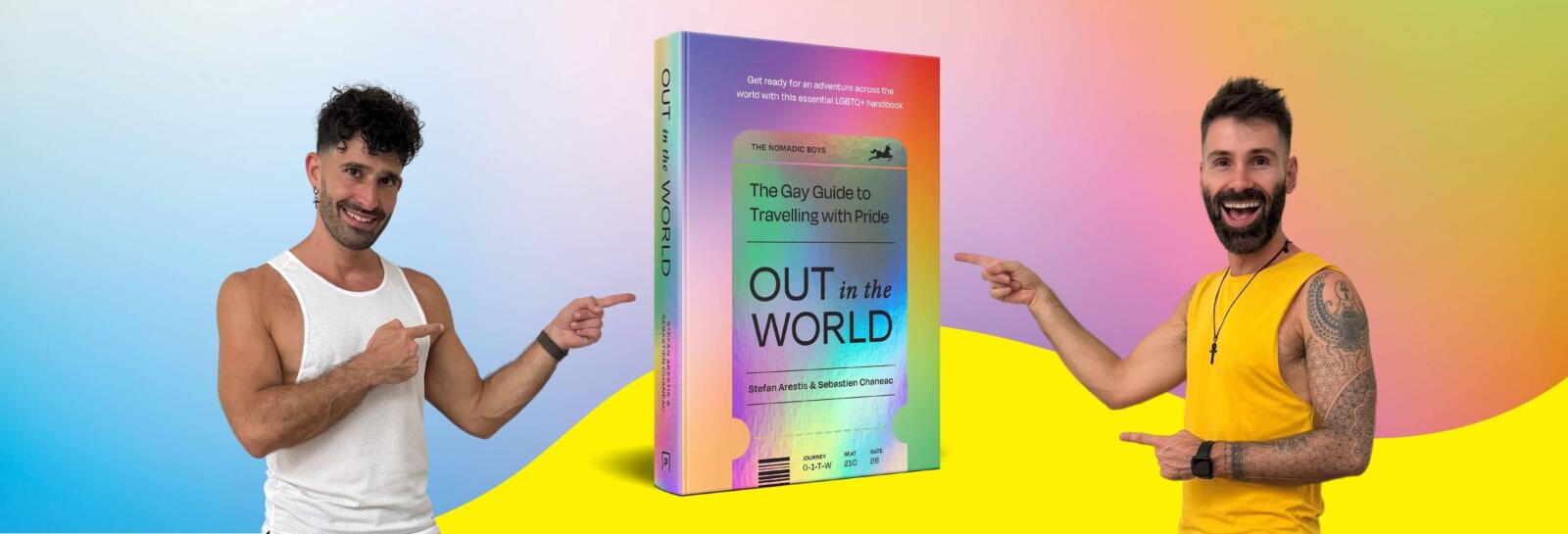
And let’s be real: as gay travelers, we’re not just checking TripAdvisor, we’re checking who’s nearby. In places where homosexuality is criminalized, apps like Grindr or Scruff can put you at risk if you’re not protected. A VPN adds that layer of security, making sure your online activity stays private. No one needs to know you were messaging a “friendly local” at 2 am… least of all the local authorities.
Over the years, our VPN has become as essential as our toothbrushes. We use it to upload content safely and to access apps we rely on that might otherwise be blocked. Whether we're booking flights, checking banking apps, or just trying to message home, a VPN keeps it all secure. It might not be the sexiest thing we pack, but when it comes to staying safe, visible, and connected on the road, it’s 100% non-negotiable.
Heads up: We just wanted to let you know that this post contains affiliate links. That means if you book something through one of those links, we'll get a small commission, at no extra cost to you. It helps us keep our blog going – so thank you in advance for your support! ♥
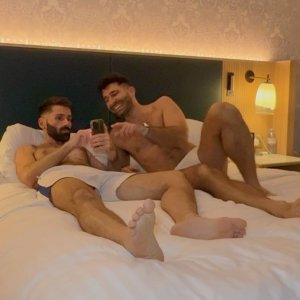
Traveling without Internet? *Gay gasp!*
Get Ubigi eSIM, scan the QR, and connect faster than a twink on Pride weekend. No stress, just data. Claim 10% off your first order with promo code: NOMADICBOYS.
Book your plan up to 6 months ahead: it activates when you land. Prep now, slay later, and make every destination your runway.
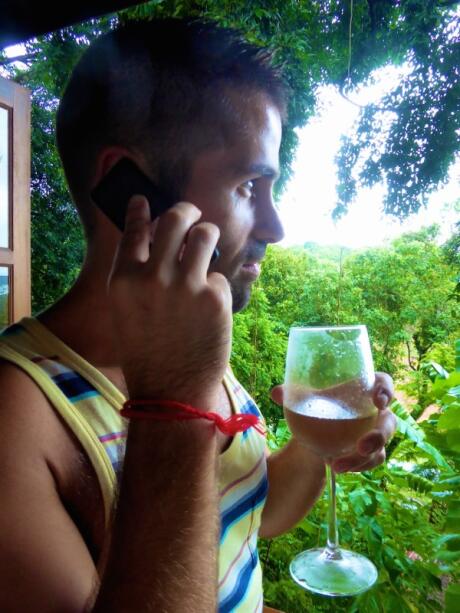
What exactly is a VPN?
VPN stands for Virtual Private Network. It is a tool that lets you connect to the Internet via a server in a different country. So instead of accessing the web directly from, say, Saudi Arabia or China, you can select the country server to route your connection through – in our case, it's usually a server in the UK or the US.
Why does that matter? Because it tricks the internet into thinking you’re in that country, so you can access websites and apps that might otherwise be blocked where you actually are. On top of that, it encrypts your data, meaning your online activity is hidden from prying eyes, whether that’s your hotel’s sketchy Wi-Fi, government censors, or the overenthusiastic IT guy next door.
For us, using a VPN while travelling isn’t optional, it’s essential! It means we can still access the apps we rely on, even in places where they’re blocked. It lets us check Grindr in Cairo, post stories in Beijing, or book hotels in Qatar without hitting a digital brick wall. More importantly, it keeps what we do online private: no one sees where we're logging in from or what we’re doing. It’s like slipping through the Internet with The Cloak of Invisibility!
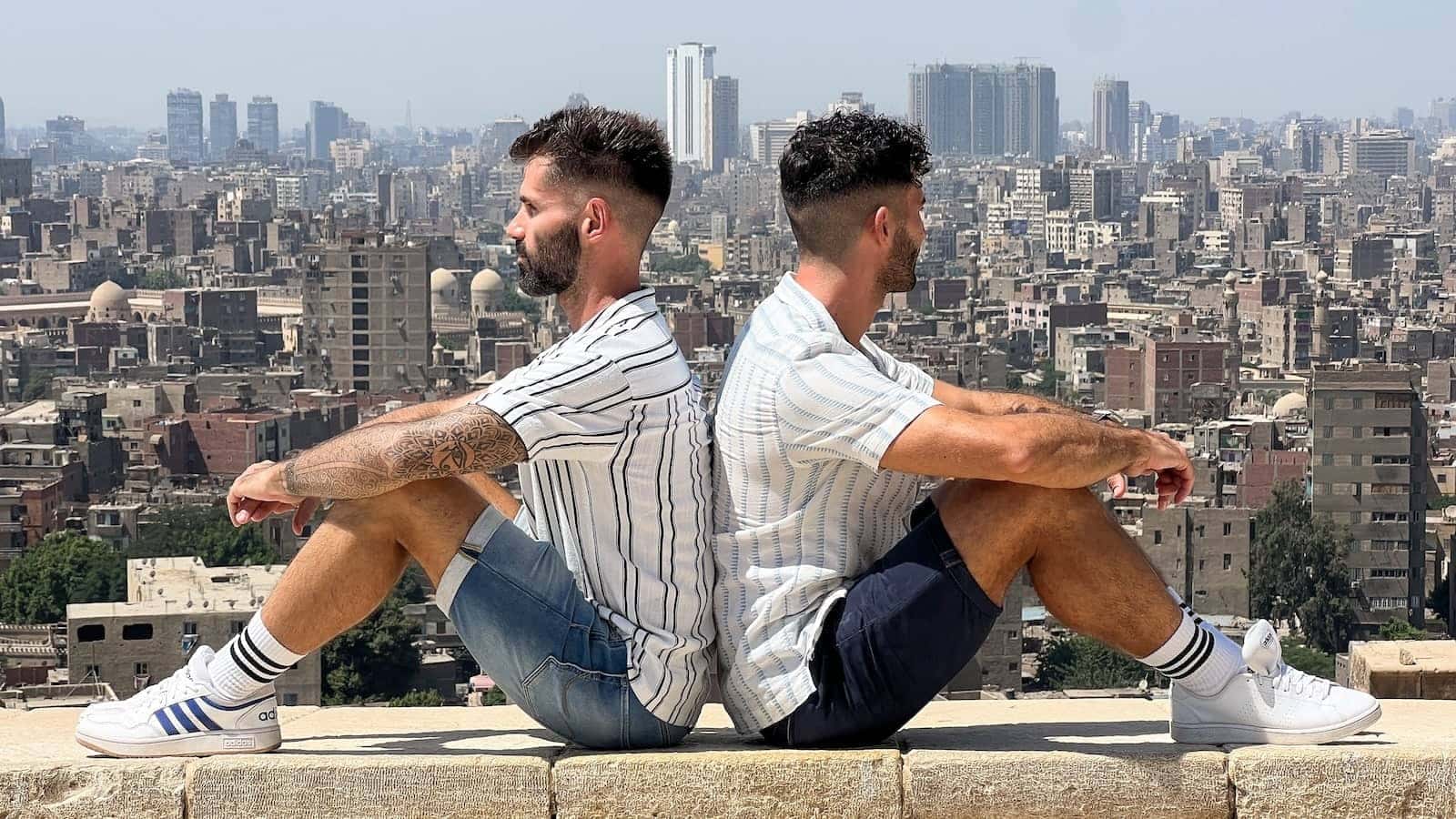
Why is a VPN important for gay travelers?
As gay travelers, we’re often navigating countries where simply being gay can get you into a lot of trouble, let alone using dating apps or posting shirtless pics online… In places where homosexuality is criminalised or heavily policed, your digital footprint can be just as risky as your physical presence. That’s where a VPN becomes a lifeline.
It’s not just about unblocking Grindr. A VPN protects your privacy by encrypting your internet activity, making it much harder for local authorities, Internet providers, or random hackers to track what you’re doing online. It also lets you access essential tools like WhatsApp, Google Maps, or cloud storage that might otherwise be restricted.
We’ve been to countries where being gay is taboo, or downright illegal. Using a VPN gave us the peace of mind to stay connected, informed, and a little less censored. It’s not a magic fix, but it’s a damn good first step in protecting yourself while still being yourself, wherever you go. We learnt this the hard way when we got blacklisted in Lebanon back in the days when we made the rookie gay travel error of no investing in a VPN and posting content in a country with an anti gay law during our trip.
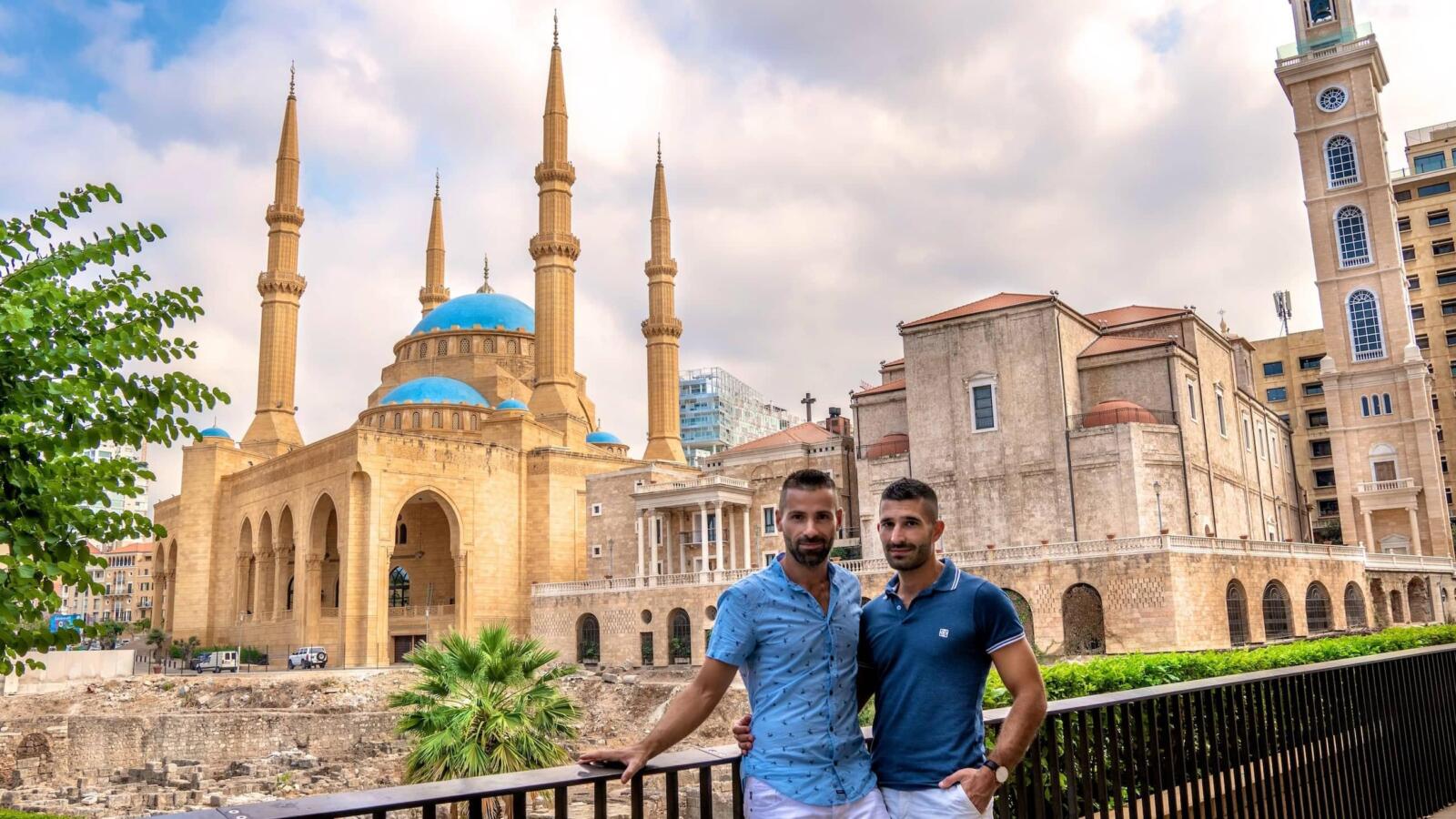
Are there any downsides to using a VPN?
Not many, but a VPN isn’t completely flawless. The biggest thing we noticed was a slight drop in internet speed. Because your data is being rerouted through a remote server (sometimes halfway across the world), it can slow things down a bit, especially if streaming or uploading big files.
Also, some websites and apps don’t always play nice with VPNs. For example, your bank might flag your login if you're suddenly accessing your account from a UK server while you’re physically in Thailand, which will trigger security/fraud alerts. It’s happened to us a few times. When it did, we just quickly disconnected the VPN to complete a transaction or verify our identity. It’s not a dealbreaker, but it’s something to be aware of when juggling things like online banking or certain streaming platforms. Interestingly, our bank, Barclays, encourages the use of VPN for online security.
And finally, while a VPN helps protect your privacy, it’s not a license to take risks in unsafe countries. It’s a tool, not a force field!
Sage words from your Uncle Seby: use it wisely, combine it with good judgment, and you’ll be miles ahead when it comes to staying safe online 🙂
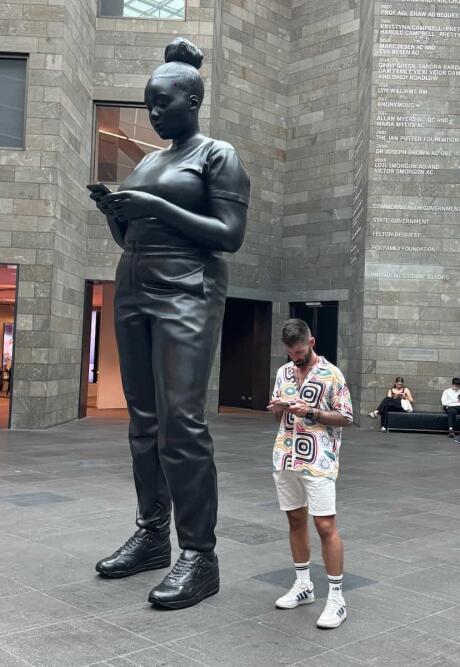
How do you set up a VPN?
Setting up a VPN is surprisingly easy. If you’ve ever downloaded an app or ordered food drunk at 2 am, you’ve got this!
- Step 1: Download the VPN app on your phone, tablet, or laptop.
- Step 2: Create an account and log in.
- Step 3: Choose your server location (we usually go for the UK or US).
- Step 4: Hit “Connect.” That’s it.
Once it’s on, you’re safely browsing from another country with encrypted data and zero digital side-eye. I keep mine running anytime we’re traveling, especially on public Wi-Fi and in countries with spurious anti LGBTQ+ laws.
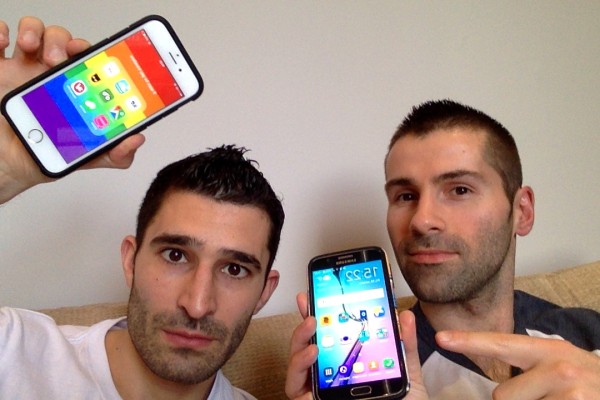
What is the best VPN for gay travelers?
We've tried several VPNs on our travels, including NordVPN, Proton, and ExpressVPN. There's not much to differentiate them if we're being brutally honest. They all cost a few dollars a month and work in the same way.
The one we use the most is ExpressVPN. It does the job and is easy to use. Stefan used it during his trips in Oman and Saudi Arabia to access Grindr and other blocked apps/websites and it worked just fine.
Get connected!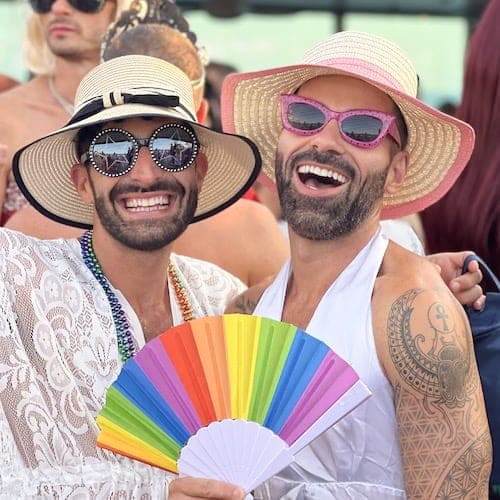
Travel, Twerk, and Chill!
Don’t be that queen who skips travel insurance. ‘Cause nothing ruins a trip faster than tears, tantrums, and tragic bills…
Stay covered, stay fabulous, and keep your vacation free, fun, and frivolous!
Read more travel adventures like this in our book!
We've published our very own gay travel book called, ‘Out in the World'. It has all our practical safety tips, first-hand advice, and travel stories from some of our favorite destinations.
We hope it inspires you to have a fun and safe trip!
Click on the book to order:

For more inspiration:
- Please read our safety guide to gay dating apps
- Our Gay Travel Page is essential reading for all queer travelers
- Read what we rate to be the best gay Pride events in the world
- These are what we rate as the best gay travel apps
- Our practical tips for traveling with PrEP is a must read

